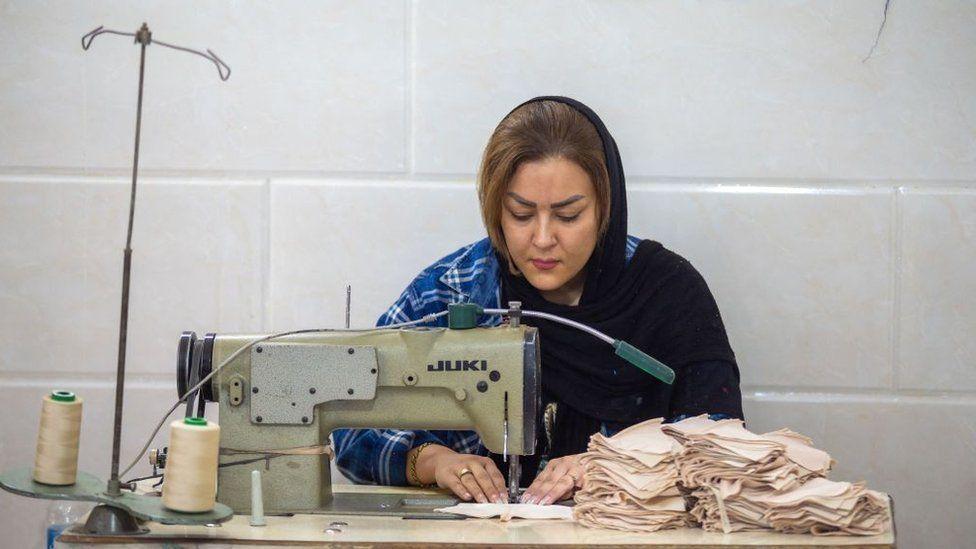
“For one job interview dem ask me to provide written statement by my husband to prove say I get im permission to work,” Neda, wey hold Master’s Degree for Oil and Gas Engineering for Iran tok.
She say she bin feel humiliated.
“I tell dem I be adult and I fit make my own decisions”.
No be only her get dis kain experience. Legally, married women for Iran need dia husbands’ permission to work – dis na one out of di many legal barriers dem dey face wen dem wan enta di job market.
One 2024 report from The World Bank rank Iran among di worst kontris wen e come to gendered legal barriers for di labour force (only Yemen plus di West Bank and Gaza rank lower).
And oda statistics also show dis. According to di World Economic Forum’s 2024 Global Gender Gap recent report, Iran get di lowest rate of women participation for di labour force among di 146 kontris dem survey.
Women represent more dan 50% of all di University graduates for Iran, yet na just 12% of dem dey for di workforce, based on one 2023 data.
Gendered laws plus widespread sexual harassment and oda sexist views on women and dia abilities make di work environment quite hostile for women.
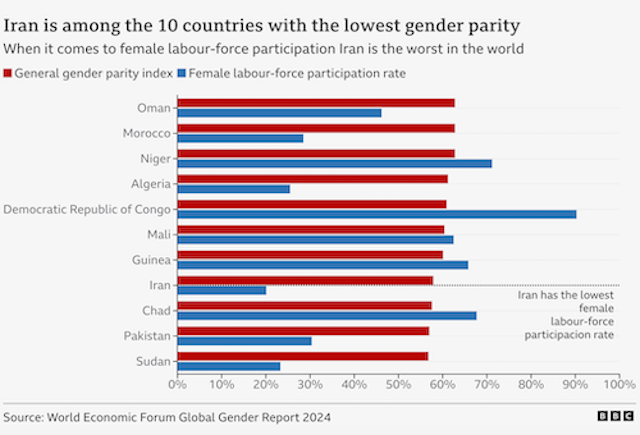
Most of di women BBC follow tok for dis piece, say dem dey feel say nobody dey take dem seriously enough at work.
“Various legal and cultural barriers dey keep women out of di workforce for Iran”, Nadereh Chamlou, one former senior adviser to di World Bank tok.
Ms Chamlou say factors like lack of legal frameworks and di legal limitations wey dey in place, di very wide gender pay gap plus di “very low glass ceiling” contribute to women limited participation for di workforce for Iran.
- Iran install cameras to find women wey no wear hijab
- Iranian couple gbab 10-years jail sentence for dancing
E dey legal… and cultural
Men know say dem fit legally stop dia wives from working and some of dem dey make use of dis legal privilege.
Iranian entrepreneur Saeed tell BBC say “one angry husband don barge enta our office, and dey swing one metal rod for air and dey shout, ‘who give you permission to hire my wife?’’’.
E say now, im dey make sure e ask for husband written authorisation wen e wan hire woman.
Razieh, one young professional wey dey work for one private company, recall similar incident wen one angry man storm dia office and tell di CEO: ‘I no want my wife to work for here’.
Di CEO, Razieh, tell di woman, wey be senior accountant, “to go home and try to make tins work wit her husband odawise she go need to resign, which she later do.”
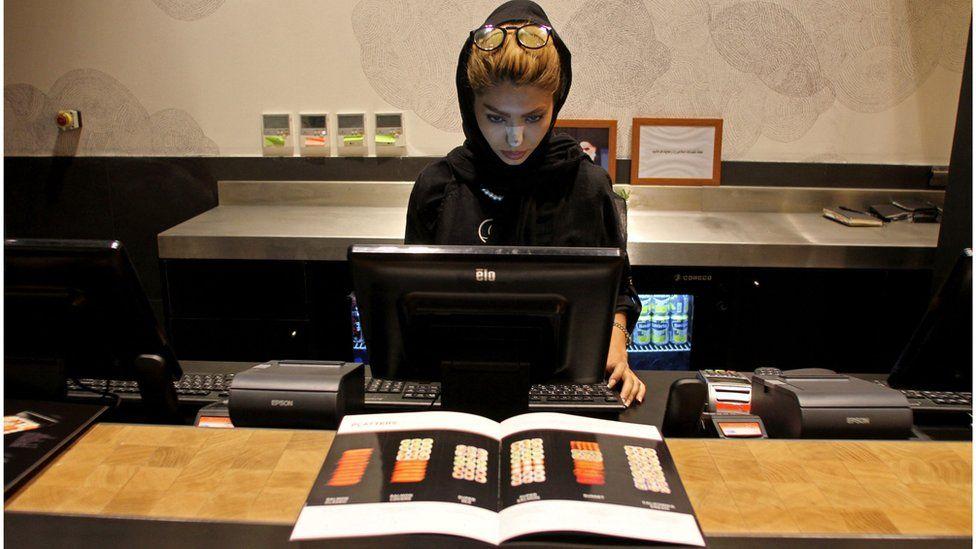
Dis legislation don also lead to why many companies dey refuse to hire young women, Nadereh Chamlou tok, as employers no wan “invest in training dis women den dia husbands fit take dem out of work”.
And even if dem dey hired afta dem most time don fight dia own families and spouses to get permission to work, women enta workforce wia discrimination to an extent dey backed by law.
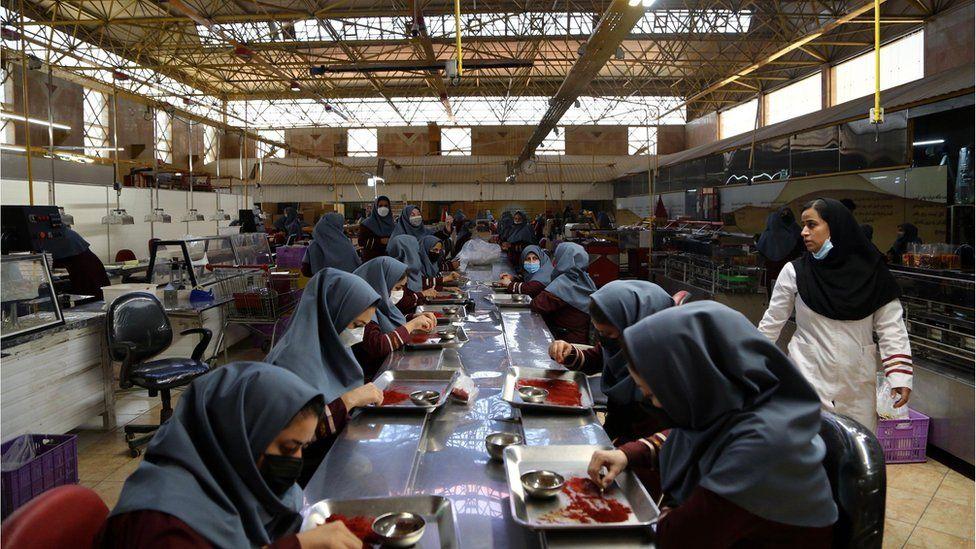
One of such law na di article 1105 of di Islamic Republic’s Civil Code, in which di husband dey defined as di head of di family and di ‘main breadwinner’.
Dis one mean say dem dey prioritize men for employment ova women. Women dey expected to work for small salary compared to dia male counterparts if dem dem dey offered di position.
Raz wey dey her late 20s and don change jobs few times tok say everywia she don work na women jobs dem dey sacrifice first.
“Di last place I work, wen restructure dey almost all dose wey dem ask to leave na women,” she tok.
Anoda woman wey ask make dem no mention her identity tell di BBC she decide to leave her job afta more dan one decade and stay for house “becos I know I no go ever get promoted”.
“As long as men dey available, even if less qualified, I no go never dey considered for pay rise or promotion. na waste of my time,” she tok.
Di fact say women no dey legally considered breadwinners and providers for di household, impact weda dem dey qualify for benefits and bonuses.
For many cases, if dem dey eligible “di benefits dem accumulate throughout dia years of employment fit no apply to dia families, benefits like dia pension”, Ms Chamlou tok.
“So, dem dey reduce di return women get from working and wetin dem fit bring to dia families,” di former senior adviser to di World Bank add.
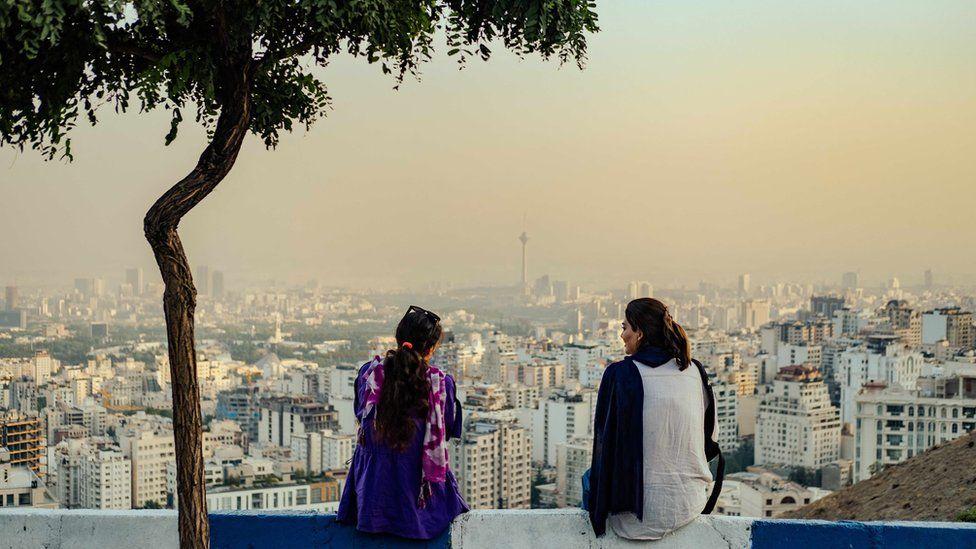
Sepideh get Master Degree for Arts from Tehran University She bin dey teach and run independent art projects for thre, but for some years she stop dey work.
“Afta graduation I tink say I go fit just make living like many of di men I sabi, but dem design di social, political and economic structure for way wey make having a proper career for women dey unattainable dream,” Sepideh tell BBC.
Di compulsory hijab law na di centre of widespread protests for Iran two years ago and kontinu to be one of di main topics of dispute and political dissent for di kontri.
Dis law also make different jobs, particularly for goment and public sector, inaccessible to women wey no wan conform to some of di strictest forms of hijab.
Di ‘missing middle’
‘For Iran e get wetin I dey call di missing middle,’ Nadereh Chamlou tok, she explain say wetin she mean na “middle aged, mid-educated; high school educated, middle class women wey no dey work”.
“Di legal permission from husbands to work, alongside di lower retirement age for women for Iran na 55, dem close dat age group wey be say for oda kontris normally na dem di workforce”.
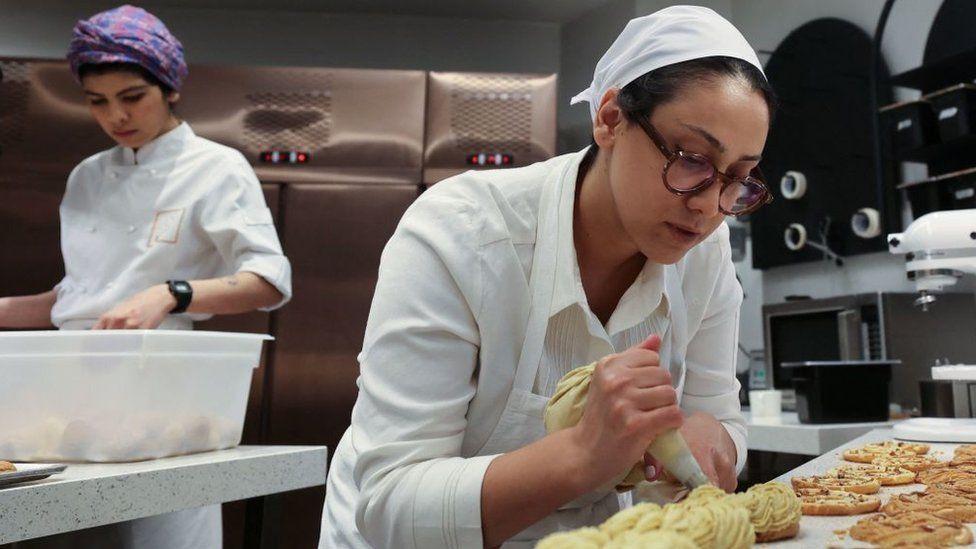
Sanctions and mismanagement don cripple Iran economy.
One IMF report show say economic growth dey connected wit greater female labour participation, e estimate say if dem bring female employment rate for Iran to di employment level of di male, e fit boost di kontri domestic product (GDP) by around 40%.
Although, for Nadereh Chamlou view, dem no get “active or conscious political will” at present wey go facilitate changes to bring women into di workforce.
But she believe say women for Iran dey take mata into dia own hands and dem dey create small independent businesses to open up di labour market for dem.
“Some of di most innovative business ideas, from cooking apps to digital retail platforms, na business wey women start,” she explain, as she see one “true private sector for Iran” wey be say na women get most of dem.







